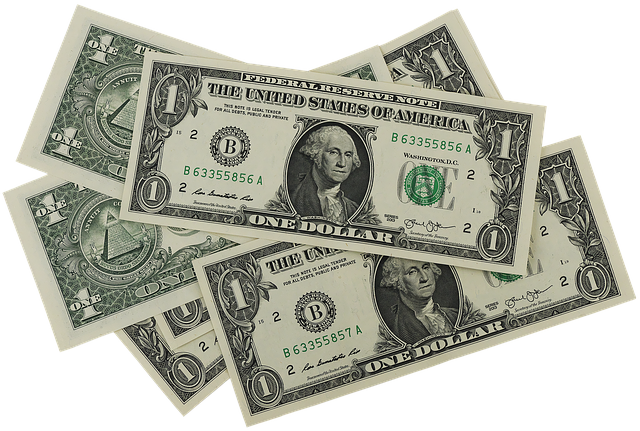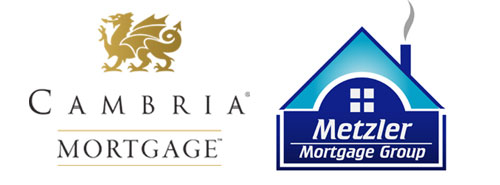-
Share via:
(651) 552-3681
Home Purchase - Home Refinance
Serving MN WI IA ND SD CO FL
- Home
- Reviews
- Apply
- Quick Qualify
- Rates & Costs
- Loan Programs
- Bad Credit Loans
- Buying a House
- Commercial / Apartment
- Doctor Loans
- FHA Loans
- Down Payment Assistance
- First Time Home Buyer
- HomeReady
- Investor DSCR Loans
- Luxury home financing
- Jumbo Loans
- Loans for Self Employed
- New Construction Loans
- No Down Payment Loans
- No Doc / Non-QM
- Refinancing
- Contract for Deed Refi
- Renovation Loans
- USDA Loans
- VA Loans
- Client Resources
- After BK or Foreclosure
- The Home Loan Process
- Daily Mortgage News
- Your credit score
- Student loans
- Homebuyer Classes
- Mortgage FAQ
- Glossary of Mortgage Terms
- Use a Bank or Broker?
- Fixed or ARM
- Home Buyers Guide
- Mortgage Rate Locks
- Long Term Rate Locks
- Mortgage Loan Limits
- No Closing Cost Loans
- Get a Second Opinion
- Tips for a smooth closing
- Top Mortgage Mistakes
- Foreclosures / Short Sales
- How to buy foreclosures
- Well and Septic
- Beware Predatory Lenders
- About
- Blog
- My Acct
Navigation- Home
- Reviews
- Apply
- Quick Qualify
- Rates & Costs
- Loan Programs
- Bad Credit Loans
- Buying a House
- Commercial / Apartment
- Doctor Loans
- FHA Loans
- Down Payment Assistance
- First Time Home Buyer
- HomeReady
- Investor DSCR Loans
- Luxury home financing
- Jumbo Loans
- Loans for Self Employed
- New Construction Loans
- No Down Payment Loans
- No Doc / Non-QM
- Refinancing
- Contract for Deed Refi
- Renovation Loans
- USDA Loans
- VA Loans
- Client Resources
- After BK or Foreclosure
- The Home Loan Process
- Daily Mortgage News
- Your credit score
- Student loans
- Homebuyer Classes
- Mortgage FAQ
- Glossary of Mortgage Terms
- Use a Bank or Broker?
- Fixed or ARM
- Home Buyers Guide
- Mortgage Rate Locks
- Long Term Rate Locks
- Mortgage Loan Limits
- No Closing Cost Loans
- Get a Second Opinion
- Tips for a smooth closing
- Top Mortgage Mistakes
- Foreclosures / Short Sales
- How to buy foreclosures
- Well and Septic
- Beware Predatory Lenders
- About
- Blog
- My Acct
How to save on closing costs
When buying a home, you have two major costs, down payment and closing costs. Everyone understands down payment, but closing costs confuse many people, and they can be pretty expensive.
So what are closing costs?
Closing costs are the fees for services for everything involved in buying a home. No one works for free, and many people are involved with you getting a mortgage loan. They include mortgage lender fees, appraisal, credit reports, title company, title insurance, county taxes, state deed taxes, mortgage recording fees, and more. You also have additional costs known as escrow or pre-paid items, which is buying your first years homeowners insurance, and a one time pro-ration of property taxes depending on how much the homes taxes are, when taxes are due in your area, and what month of the year you are buying the house.

Who pays the closing costs?
The buyer always does. But there are multiple ways to pay. Cash out of pocket, rolled into the transaction through either a higher interest rate or a higher purchase price, or a combination of all of these.
How much are closing costs?
You will see many people say closing costs are typically you'll see people say 2% - 5%. This has never ever been a true rule of thumb because there are so many variables. Loan type, loan amount, property type, local customs, and the buyers choice of interest rate, and how to pay. Less expensive homes will tend to be a higher percentage, while more expensive homes will be a smaller percentage.
For example, just the appraisal alone will typically be around $500 regardless if you buy a $50,000 home or a $500,000 home, as the appraiser does the same amount of work for each. But $500 on a $50,000 is 1% all by itself, while on a $500,000 home, it is 0.1%.
Only with a discussion with your Loan Officer can you determine closing costs.
How can I save on closing costs?
Studies show that the closing costs are always more costly than many buyers expect, especially first time home buyers. But there are some ways to lower your costs, or out-of-pocket costs, including:
The most popular way is to negotiate with the seller to have the seller pay your closing costs. This sounds great, and it is in the fact that you've reduced your out-of-pocket expense needed today to buy a home.
But understand it isn't free. For example, let us assume the seller is asking for $200,000 for the home, and you'd like them to pay $6,000. If the seller says yes to that, it sounds like you just saved $6,000. The reality is the seller just accepted $194,000 in their pocket, and you financed $6,000 in the loan with a $200,000 offer.
Another common example would be the seller wants $200,000 for the home, and you'd like them to pay $6,000 of your closing costs, so you negotiate a sales price of $206,000. Again, you are financing the closing costs, but both of these options are super popular because it reduces your immediate need for that money today at closing.
Discuss with your Loan Officer lower cost loan options. All lenders can and will offer lower closing costs options in exchange for a higher interest rate. From no discount points, and no loan origination fees, all the way down to no closing costs whatsoever. Small reductions in closing costs will equal small interest rate increases, while large closing cost reductions will mean larger interest rates increases.
No one likes a little higher interest rate, or a higher loan amount, but these very popular options simply allow you to exchanging cash needed to buy the home today with paying for it a little bit over time.
** EXPERIENCE MATTERS **
Top rated mortgage lender locally and nationally, year after year... This is because clients agree - Experienced Loan Officers with mortgage interest rates you can brag about and amazing service clearly sets us apart from the big banks and online lenders.
Address
33 Wentworth Ave E, St Paul, MN 55118
Contact
Main (651) 552-3681
Joe@JoeMetzler.com
Cell/Text (651) 705-6261We also call from
(651) 615-7545
(952) 486-6135License Info
Cambria Mortgage
NMLS# 322798 Branch:1888858Joe Metzler Loan Officer
NMLS# 274132. License MN #MLO-274132, WI #11418. SD #MLO.03095, ND #NDMLO274132, IA #36175, FL #LO119389, CO #100536785Privacy Policies | Disclaimers | Disclosures | Terms of Use | DMCA Notice | ADA Notice |

Equal Housing Lender. The Joe Metzler Team at Cambria Mortgage lends in Minnesota, Wisconsin, Iowa, North Dakota, South Dakota, Colorado, and Florida only. This is not an offer to lend or to extend credit, nor is this a guaranty of loan approval or commitment to lend. Information here can become out of date, and may no longer be accurate. Products and interest rates are subject to change at any time due to changing market conditions. Not all programs available in all states. Actual rates available to you may vary based upon a number of factors. Consumers must independently verify the accuracy and currency of available mortgage programs. All loan approvals are subject to the borrower(s) satisfying all underwriting guidelines and loan approval conditions and providing an acceptable property, appraisal and title report. Joe Metzler, NMLS 274132, Cambria Mortgage NMLS 322798. © 1998 - 2024.









